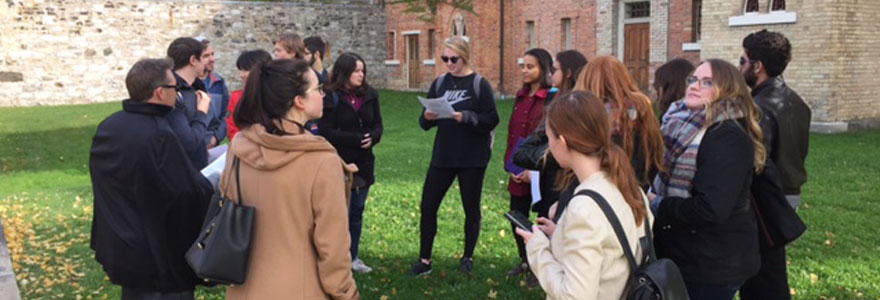News and Updates
Contact
Faculty of Social Science
Social Science Centre
Room 9438
Western University
T. 519-661-2053
F. 519-661-3868
E. social-science@uwo.ca
Anonymous gift opens door to experiential learning in history
October 23, 2020
Students in the Public History Minor at Western will have more hands-on learning opportunities, thanks to an anonymous donor.
The “Public History Experiential Learning Fund for Local History” has been established, through a $25,000 donation. The fund will support experiential learning opportunities for students in Public History that relate to local history, but the use of the funds are flexible, at the discretion of the Public History Director and Internship Coordinator.
The support comes from an anonymous donor who was connected to the Western community, and wanted to make a contribution. “They were aware of things going on in the public history program and had an interest in local history, possible due to the news around our program's recent work on an audio documentary tour called Hear, Here London,” said Mike Dove, Director and Internship Coordinator, M.A. and Minor Programs in Public History.
The Department of History introduced the Master’s in Public History in 1986, which is Canada’s oldest such program, and the minor in public history was the first of its kind in Ontario when it was introduced in 2017. Since then others have started, and all include experiential learning components. While the Western program included experiential learning there were not funds available to support students in these experiences.
When the donor reached out and expressed interest in supporting local history projects, the department saw it as a chance to develop hands-on learning in the minor.
“The donor was open to the idea,” said Dove. “They wanted to make sure it was going to an undergraduate student, assisting a local heritage organization to do work that wouldn’t get done otherwise.”
Instead of specifying a student award or a specific project, the funds are more open ended, and can benefit more students. Dove said the funds could be used for student awards, to fund professional development opportunities or workshops, site visits, guest speaker series.
“I’m glad we did air on the side of caution in terms of flexibility, especially with the current situation,” said Dove. “If you get the funds, you can do some interesting worthwhile things and add to the student experience in other ways.”
The gift will support future students, but Dove feels it is also a sign of support for the students who have already completed the program. "The gift underlines that the work is valued, by Western, by our department and by the heritage organizations," said Dove.
The Public History Experiential Learning Fund for Local History will be first used this 2020-2021 year. For more information, contact Mike Dove.

